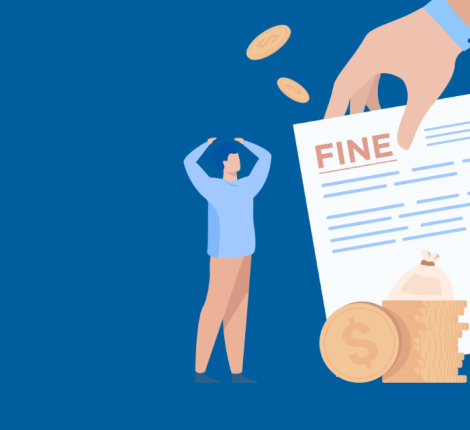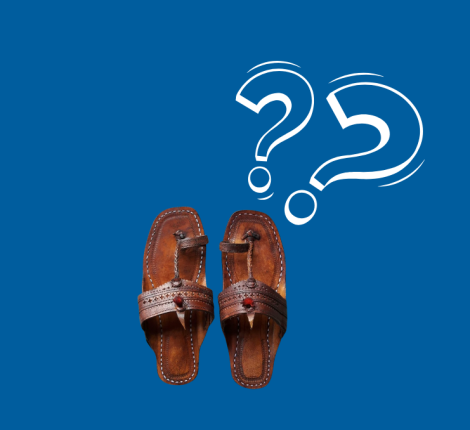IPR Newsletter: BIG BASKET AND DAILY BASKET: CONCEPT OF TRADEMARK BULLYING-April-2021
BigBasket by its own admission is the largest online food and grocery store in India whereas Daily Basket claims to be a tiny boot strapped Coimbatore-based two-person start-up. Daily Basket is an online/offline grocery startup currently serving only in Coimbatore. BigBasket sent a cease-and-desist notice to Daily Basket alleging infringement of its trademark. BigBasket in its cease-and-desist notice claimed that mention or reference of “basket” in word or logo form in any e-commerce business and related products conjure in the minds of relevant class of consumers and members of trade as that of being associated with BigBasket. BigBasket’s notice seems to have claimed monopoly over the word ‘Basket.’
Facts of the case
Arguments
The use of the word “Basket” is in relation to grocery store items. The word is arguably descriptive or at least suggestive of the goods and services provided by the company. The point of the e-commerce company is to provide customers an online basket/cart/pantry in which they can add products for ordering which would then be delivered to the customers. That is why Amazon’s online grocery business is called Amazon Pantry, and the word ‘Basket’ has been used for similar services by online grocery store Nature’s Basket since 2005, far before BigBasket even commenced its business operations. Thus, unlike say Grofers which is a completely arbitrary, fanciful and coined brand name for online grocery services, the use of Basket in its brand name is not as unique and novel as BigBasket’s notice would make it seem.
Protection is granted to the mark as a whole. The Bombay High Court in Sky Enterprise Private Ltd. v. Abaad Masala and Co. had held that the defendant could not use the exact combination as the plaintiff’s registered trade marks ‘White Chinese Pepper Masala’ and ‘Black Chinese Pepper Masala’ in that particular order. However, each individual word in a different order to describe the pepper masala could be used by any trader. In Mitsubishi v Fiat, the U.K. Court of Appeals (Chancery Division) held that the test to determine confusion with an earlier mark requires the confusion to be real and proximate, and not fanciful and remote, amongst a substantial number of people as per . The Court here allowed the registration of the mark “Lancer” for cars by Mitsubishi as against “Colt Lancer” used by Fiat for its cars, on the ground that the two marks were visually distinguishable.
Observations
In the present case, apart from the word ‘basket’, there are no similarities in the marks used by Daily Basket and BigBasket. The colours, font, graphics and complete names of the brand are clearly different, leaving no room for confusion. The channels of distribution of the goods for the two companies make it abundantly clear that customers cannot purchase Daily Basket’s products without encountering their trademark. Further, it has been held in the case of 1A PHARMA GMBH V. THE JOINT REGISTRAR TRADE MARKS by the IPAB that while comparing marks, it is not correct to take a part of the word and compare it with a part of the other word; the entire mark must be considered as a whole and compared with the other mark as a whole.
“This principle of considering the overall impression of the mark instead of the similarity/dissimilarity of one word within it applies to the case at hand since it is extremely unlikely that BigBasket and Daily Basket would either appear or sound confusingly similar to the average consumer”.
CONCEPT OF TRADEMARK BULLYING
A trade mark bully is an act by someone “that usesitstrademark rightsto harass and intimidate another business beyond what the law might be reasonably interpreted to allow.” The notice in present case requires Daily Basket to cease all its operations. BigBasket accused Daily Basket of dishonestly adopting its mark to deceptively make it similar to BigBasket. BigBasket’s accusations against Daily Basket are akin to trade mark bullying. In the present case, Daily Basket chose to hit back by providing an interactive website, bbisabully.com, countering each of BigBasket’s claims to demonstrate that the company was engaging in corporate bullying. Many social media posts against BigBasket also generated significant online traction supporting Daily Basket’s online campaign. BigBasket issued a statement in response to this clarifying that it raised an objection to the mark with the trade mark registry to protect its brand and it intends to resolve the issue with Daily Basket in an amicable manner .
WHAT IS A TRADEMARK AND HOW ARE COMPANIES ABUSING ITS POWER?
Large Corporations take extraordinary measures to protect their intellectual property rights, some of these efforts may be unethical and illegal. The Patent and Trademark Office defines a trademark bully as “a trademark owner that uses its trademark rights to harass and intimidate another business beyond what the law might be reasonably interpreted to allow.” These “bullies” take their preventative measures far beyond the threat of litigation. Large Corporations file suit against anyone they deem to be their competition, whether or not their allegations hold merit. Litigation requires a devotion of time, money, and effort and many competitors do not have the resources to fight. However, these corporations can afford all these with resources available at their disposal. Companies are threatening litigation not just for actual infringement, but in situations where logos may be vaguely similar. Companies are also filing suit when they discover a smaller company selling their product, at a lower cost. They want them removed, and they will attempt to eliminate their competition at any cost whether or not they are actually committing trademark infringement.
HOW CAN A COMPANY DEFEND THEMSELVES AGAINST TRADEMARK BULLYING?
A company who wishes to fight against trademark bullying will first need to establish that they did not infringe on anyone’s intellectual property rights. Trademark bullying is an obstacle for smaller businesses to enter the market. Due to this many of these businesses are discouraged from launching their products, spreading their business in a new market, or using a certain trademark, as they may face a legal consequence from the larger entities. Below mentioned are some measures the smaller companies can defend themselves from trademark bullying
1. The company should take proper care before registering its mark in order to not infringe another company’s intellectual property rights by conducting proper search for any similar marks before applying for a trademark to avoid future litigations.
2. The trademark owner should keep knowledge of basic trademark laws. Basic knowledge of the same can help the owner to differentiate between a legitimate claim and an unreasonable claim or threats from the opposite party as it is very important to distinguish when the trademark is being bullied.
3. The smaller business should not voluntarily back down in front of the bullying attempt.
4. The companies can always offer to settle the matter through Alternative Dispute Resolution such as arbitration or mediation. This can help to save the defending cost.
5. The trademark owner should wait till the mark is fully registered, before investing in brand advertising or manufacturing products with the mark.
6. The smaller business can also publicize the bullying. This can lead the bully company to take back its suit due to negative publicity which can hinder its reputation and brand name.
CONCLUSION
A trademark is one of the crucial asset of a company. It becomes an identity for a company and makes it easy for consumers to find the business. Therefore, protecting the trademark from the ‘bullies’ should be a priority for the business owners. Trademark bullying is prevalent problem . However, all infringement notices cannot be termed as threats or trademark bullying. It is very important for the person initiating the legal action that it is within the scope of his rights and reasonable claims. The defendants can always resort to courts to get justice. They can claim compensation for the loss incurred or a claim of defamation depending on the severity of the trademark bullying. The theory of Trademark bullying is slowly catching up in India and it can be seen that Courts are not restraining themselves to protect the small or local business against the big brands.




